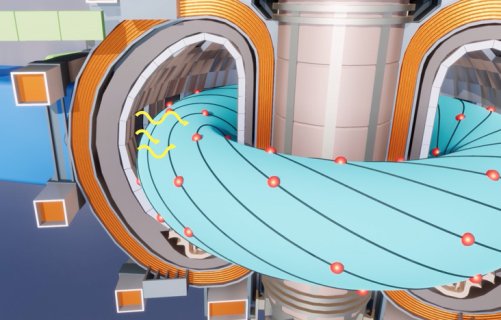
Nuclear Fusion Courses
Nuclear Fusion Courses
How Does Thermonuclear Fusion Work?
How Does Thermonuclear Fusion Work?
Thermonuclear fusion powers the stars and produces 10 times more energy than fission. Mastering it in Earth conditions would provide an endless source of energy, but many technological challenges have yet to be solved.

Construction and Working Principle of Tokamaks
Construction and Working Principle of Tokamaks
The tokamak uses a toroidal magnetic cage to isolate hot plasma from vessel walls. Thermonuclear fusion can be ignited inside after reaching suitable conditions. More than 50 tokamaks are involved in fusion research today.

Construction and Working Principle of Stellarator
Construction and Working Principle of Stellarator
The idea of a stellarator is based on the premise that plasma can be held in the reaction space by means of a special helically wound magnetic field that is generated exclusively by magnetic coils of various shapes.

Inertial Confinement Fusion
Inertial Confinement Fusion
Inertial confinement tries to quickly compress the fusion fuel to achieve high temperatures and pressures. Typically, a hydrogen sphere is hit by laser beams directed at its surface or into a cavity called the hohlraum.

ITER — a Major Step Towards Thermonuclear Fusion
ITER — a Major Step Towards Thermonuclear Fusion
The ITER tokamak is a joint scientific project for fusion research. Inside the giant reactor, the fusion of hydrogen should release up to 500 MW of energy. The knowledge gained will be used to build a fusion power plant.

Fusion Power Plant as a Clean Energy Source
Fusion Power Plant as a Clean Energy Source
Thermonuclear fusion is a clean, safe and almost inexhaustible source of energy. Fusion plant could be based on magnetic or inertial confinement, use deuterium-tritium or aneutronic fusion, and produce own tritium fuel.







